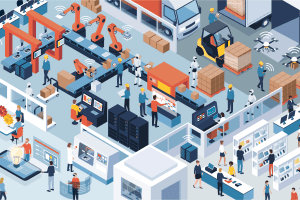The future business model: why going green is important

Unless you’ve been living under a rock the past few years, you’ll have found it hard not to notice the sustainable revolution going on around you in the world of consumerism. Whether that’s your shopping being placed in a paper bag or your morning coffee being housed in a fully recycled cardboard cup, evidence of green-leaning thought is present in much of modern retail.
If you’re sat on the other side of things as a business owner, it’s likely your business has either already started its sustainable journey or is at least very much thinking about it. Why? Well, these days going green isn’t just about doing your bit for the planet – it makes business sense, too.
Here are the three reasons why today’s future business model is to go green.
For your customers
As the lifeblood of your brand and the providers of your revenue, it makes sense to make most business decisions customer led. Big businesses spend millions on research each year trying to understand their customers better in order to create a product and brand image that promotes further investment. However, it doesn’t take too much to see that one of the most obvious customer trends of the last few years is a desire for more sustainable products.

A study from IBM is one of many that states consumerism in 2020 has reached a tipping point in terms of sustainability. According to IBM, six out of ten consumers are willing to change their shopping habits to reduce their environmental impact, while eight out of ten customers consider sustainability important to them.
Even more eye catching from a business standpoint, the report states that over 70% of consumers would be willing to pay a premium of 35% on average for brands considered sustainable and environmentally responsible. Similarly, the Independent reported on a recent poll that suggested British consumers would be willing to spend as much as £3,654 more per year on eco-friendly products.
Such numbers paint a clear picture. If you want customers to respect and buy from your business, you need to create a sustainable image. What’s more – they’ll pay a premium for it.
For your employees
The same batch of millennials and Gen-Z-ers that are pushing these consumer changes are also the ones being scooped up to work for the businesses looking to sell to them. Therefore, much of the same attitude seen in consumers towards a business will also be seen in its employees.
Just as the sustainability of products and services matter to today’s average consumer, the impact of their work does, too. An American study from early 2019 found that nearly 40% of millennials chose a job with a company based on its sustainability, but not only that – many would be willing to take a lower salary to work for a company that matched their green outlook.
So, it’s much like the consumer debate. To attract the top talent in today’s market, your sustainable image matters, but again there is a reward. Create a business good people want to work at, and it won’t all be about the money for them, which can only be a good thing for you.
For your business
If the first two reasons aren’t enough to motivate a business to change, then there is the reality that the world of commerce and industry is changing regardless – business owners unwilling to change their ways will find the green train is effectively leaving with or without them.
In the UK, a variety of new green business policies and schemes are being announced, with the government’s recent £160m “Build Back Greener” plan set to make the UK the global leader in clean wind energy and a goal of zero net emissions targeted by 2050. With such policies comes a clear direction, and with that direction comes investment for businesses who fit the eco-bill.
Furthermore, basic sustainability concepts within a business are also good for profit margins. Take waste management, for example. Modern businesses are doing their best to reduce their wastage, not only for the sake of environmental impact but also their costs. Today, businesses working in the likes of brewing, autos and book, brochure and catalogue printing are able to operate with virtually 0% waste – not only a good look, but a financially sound one, too.
So, there you have three big reasons why the future of business practically needs to be green. Fundamentally, it’s about perception to those both inside and outside of the business, but businesses are finding that with improved perception comes increased profits, making the move towards sustainability a certified win-win for all involved.
